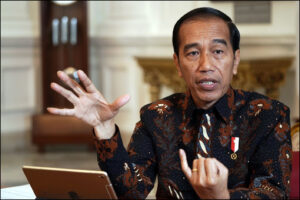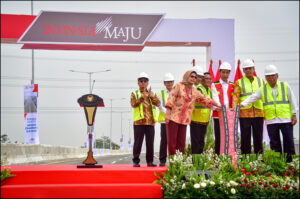Jokowi’s recent crackdown on street performers dressed as monkeys, commonly known as “topeng monyet,” has sparked a wave of criticism and concern among Indonesian artists and cultural enthusiasts. The move, aimed at addressing animal cruelty concerns, has been met with mixed reactions, with some applauding the efforts to protect animal rights while others question the impact on traditional art forms and livelihoods.
Street Performers Caught Between Tradition and Animal Welfare
For decades, the topeng monyet tradition has been a staple of Indonesian street culture. These performers, dressed in vibrant costumes depicting monkeys, entertain passersby with their acrobatic feats and playful antics. However, concerns over the welfare of these trained macaques have prompted President Joko Widodo (Jokowi) to initiate a crackdown on this practice.
Animal Rights Advocates Support Jokowi’s Initiative
The move by President Jokowi to address the issue of animal cruelty has garnered support from various animal rights organizations. These advocates argue that forcing monkeys to perform tricks for entertainment purposes is inhumane and amounts to exploitation. They stress that the training methods used can often involve physical abuse or deprivation of natural behaviors.
One such organization is PETA Indonesia (People for the Ethical Treatment of Animals), which has been campaigning against topeng monyet performances for years. They believe that such practices not only harm the monkeys involved but also encourage a culture of mistreatment towards animals.
The Impact on Traditional Art Forms
While there is a consensus on supporting initiatives against animal cruelty, many proponents of topeng monyet argue that this crackdown threatens Indonesia’s rich cultural heritage. They question whether it is fair to completely ban an art form deeply rooted in tradition without exploring alternative solutions.
The topeng monyet street performances have been passed down from generation to generation, keeping alive the customs and stories of Indonesia’s diverse communities. By eliminating this practice, some fear that an integral aspect of their culture will be lost forever.
Concerns Over Livelihood
Another significant concern raised by critics of Jokowi’s crackdown is the impact on the livelihoods of street performers. Many practitioners of topeng monyet rely on these performances as their primary source of income. The sudden ban threatens to deprive them and their families of a means to make ends meet.
Evaluating Alternative Approaches
While animal welfare remains a priority, there is a growing call for finding alternative approaches that strike a balance between preserving cultural heritage and addressing concerns related to animal rights. This has prompted discussions among various stakeholders on potential solutions.
Education and Awareness Programs
One proposed solution involves implementing educational programs aimed at raising awareness about the welfare issues surrounding topeng monyet performances. By educating both performers and audiences, it is believed that a shift towards more ethical practices can be accomplished without completely eliminating the tradition.
Supporting Transition to Other Art Forms
Another possibility is providing support for street performers to transition into alternative art forms that are not reliant on animal involvement. This could include promoting traditional music or dance performances that celebrate Indonesian culture while ensuring the well-being of animals.
Regulation and Monitoring Mechanisms
Implementing stricter regulations and monitoring mechanisms to ensure compliance with ethical treatment standards can also be considered. This would require creating guidelines for training practices as well as appointing dedicated bodies responsible for regular inspections and enforcement.
The Path Forward: Striking a Balance
As the debate continues, finding a middle ground between preserving cultural traditions and animal welfare remains crucial. It is essential to recognize that addressing concerns surrounding topeng monyet requires a holistic approach that involves collaboration among policymakers, animal rights activists, artists, and local communities.
Preserving Cultural Heritage
Efforts must be made to safeguard Indonesia’s rich cultural heritage by exploring ways to preserve traditional art forms while respecting the welfare of animals. This can involve documenting and promoting alternative artistic expressions that capture the essence of Indonesian culture without causing harm.
Supporting Economic Transition
To alleviate the economic challenges faced by street performers, providing support in terms of training opportunities or financial assistance for transitioning into alternative livelihoods can be explored. This would help ensure that individuals affected by the ban are not left without sustainable sources of income.
Fostering Dialogue and Collaboration
To achieve a comprehensive solution, open dialogue among all stakeholders is crucial. By engaging artists, animal rights organizations, and local communities in discussions on how to address concerns effectively, a mutually agreeable path forward can be identified.
In conclusion, President Jokowi’s initiative to crack down on topeng monyet performances has ignited a passionate debate between proponents of animal welfare and advocates for preserving cultural heritage. While both sides recognize the need for change, finding common ground is essential to ensure that Indonesia’s diverse traditions are upheld while animals are treated with respect and compassion.





